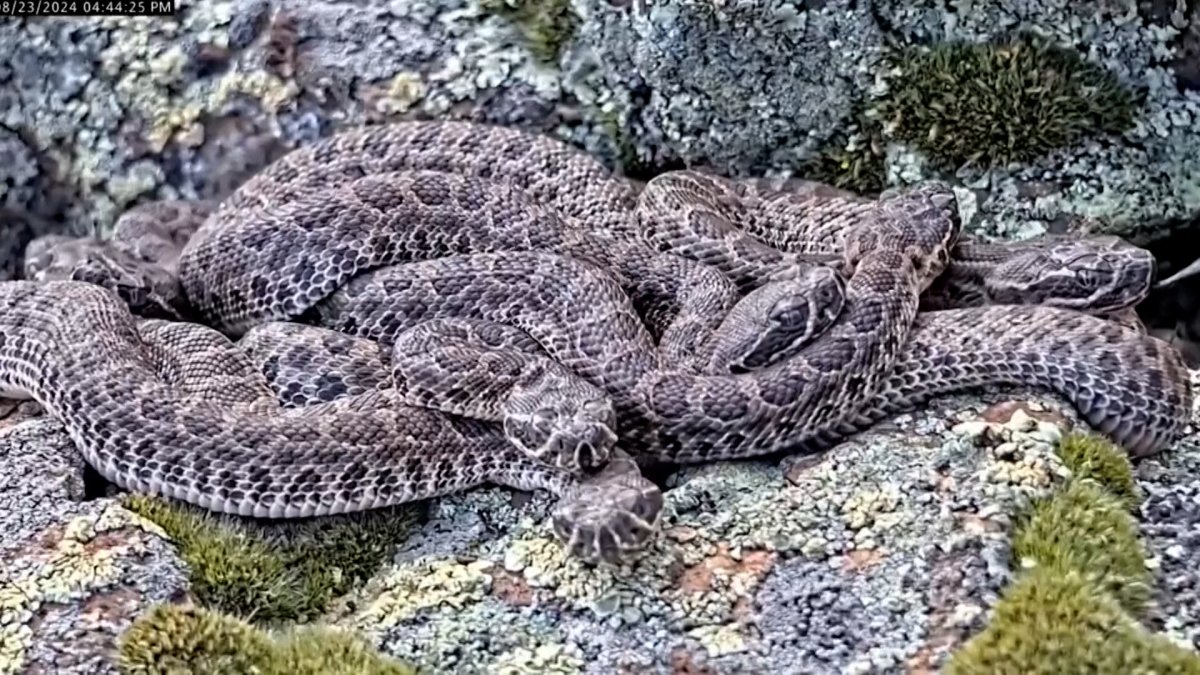Frightened of rattlesnakes?
Now you can try and overcome your fears by watching thousands of them via a livestream video.
The video reveals how the menacing-looking reptiles live in a ‘mega den’ in Colorado, including hundreds of recently-born baby rattlesnakes.
It allows scientists and the public can get a up-close look at what they get up to.
Located on a rugged hillside in Colorado, the den is home to thousands of rattlesnakes, including newly born babies that are now gliding alongside their mothers.
The Project RattleCam, a collaboration between California Polytechnic State University, Central Coast Snake Services, and Dickinson College, offers a unique and fascinating glimpse into the lives of these secretive creatures.
Since the livestream went live in May, viewers have been able to watch and even help identify individual snakes, some of which have been given names like “Woodstock,” “Thea,” and “Agent 008.”
The premise behind the project is not simply to study the snakes, but also to challenge the common perception of rattlesnakes as aggressive and dangerous.
Experts say that in reality, the snakes rarely bite unless provoked, and are far more complex in their behavior than they’re often given credit for.

Project RattleCam
One of the most intriguing aspects of the study is the discovery of the rattlesnakes’ social behavior, including ‘babysitting.’
According to Max Roberts, a graduate student researcher at California Polytechnic, pregnant females are often seen guarding newborn snakes—a rare trait among reptiles. The adults provide protection and warmth to the young until they enter hibernation in mid-autumn.
The den, which is located on private land, is kept secret to protect the site from intruders. While most of the snakes disperse during the warmer months, pregnant females stay behind until their pups are born, which is typically in late August and early September.
Researchers have also discovered other remarkable behavioral traits, such as how the snakes coil to catch and drink water, and their reactions to predators such as birds swooping in for a meal.

Project RattleCam
Roberts is studying how temperature and UV light affect snake behavior, along with fellow graduate student Owen Bachhuber, who is examining the social relationships among rattlesnakes. They spend hours monitoring the live feed.
The two men are not alone; up to 500 people at a time tune in online, assisting in the research.
The livestream will continue until November, when the snakes retreat into their den for the winter. The camera, which is powered by solar and battery energy, will then go dark until spring, when the rattlesnakes emerge once again.
With 36 species of rattlesnakes found throughout the U.S., including the prairie rattlesnakes being studied in this project, the researchers hope their work will shed light on the mysterious world these reptiles occupy.
This article includes reporting from The Associated Press


